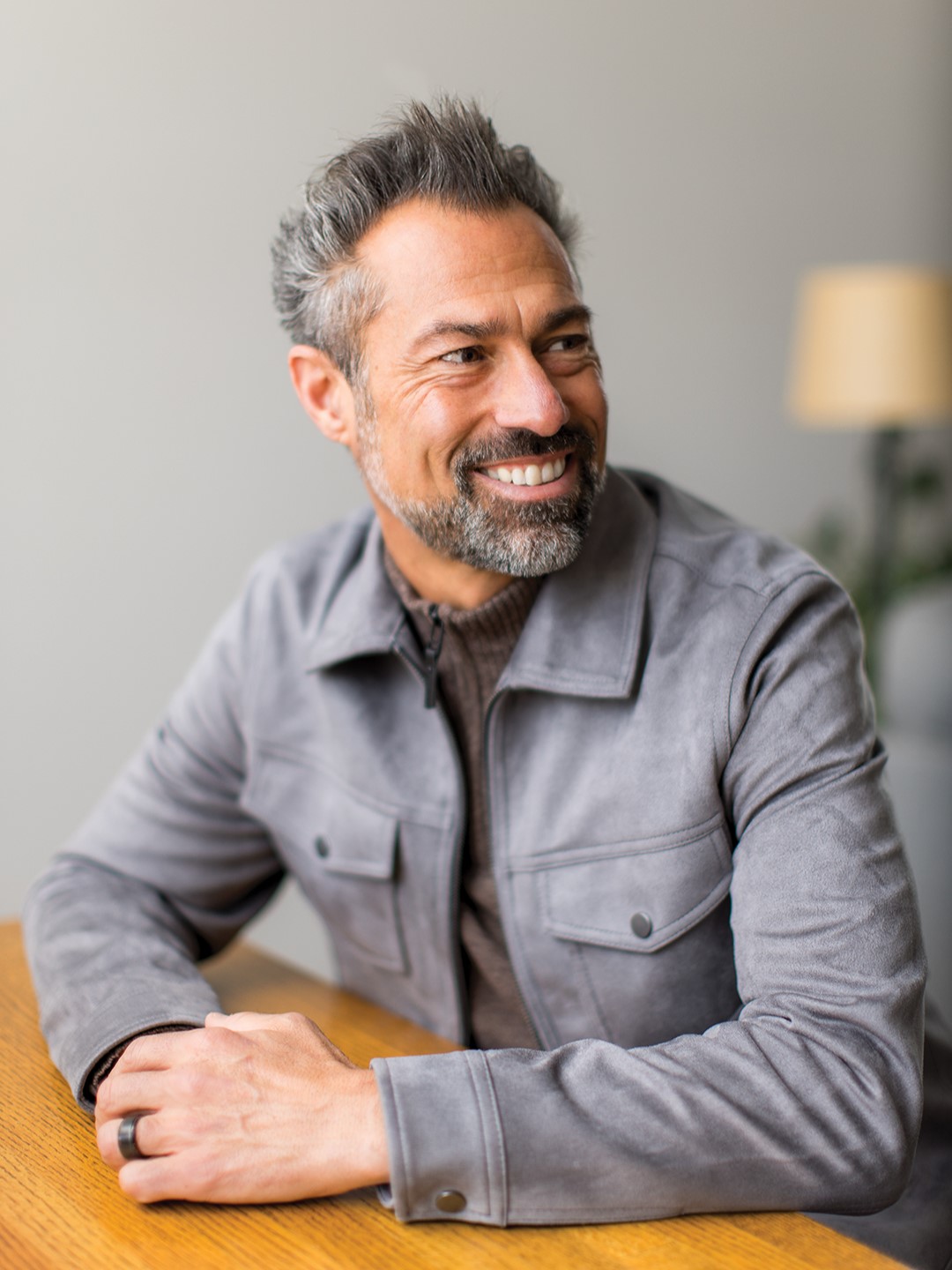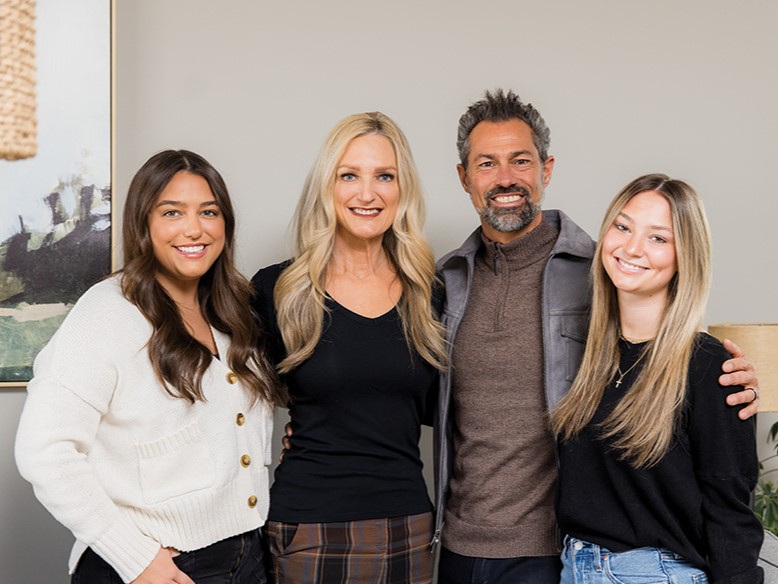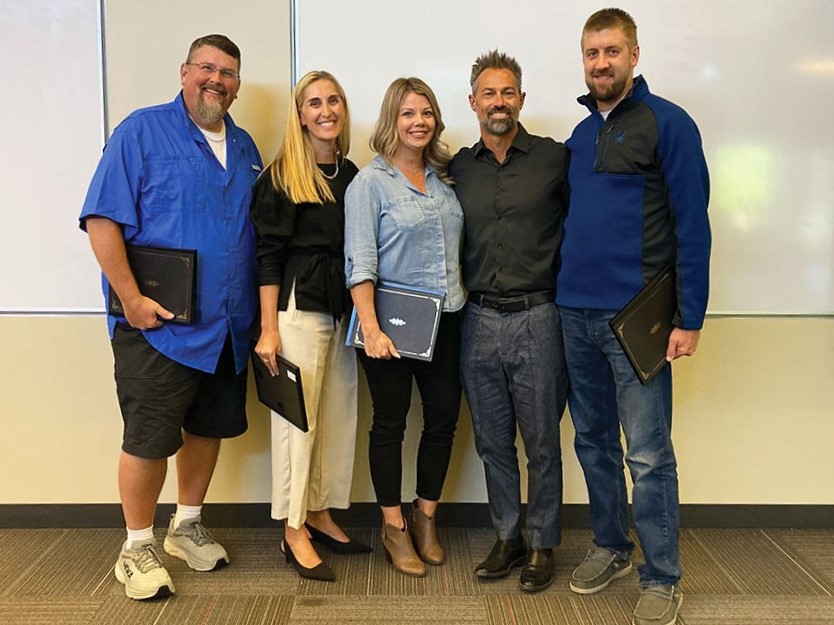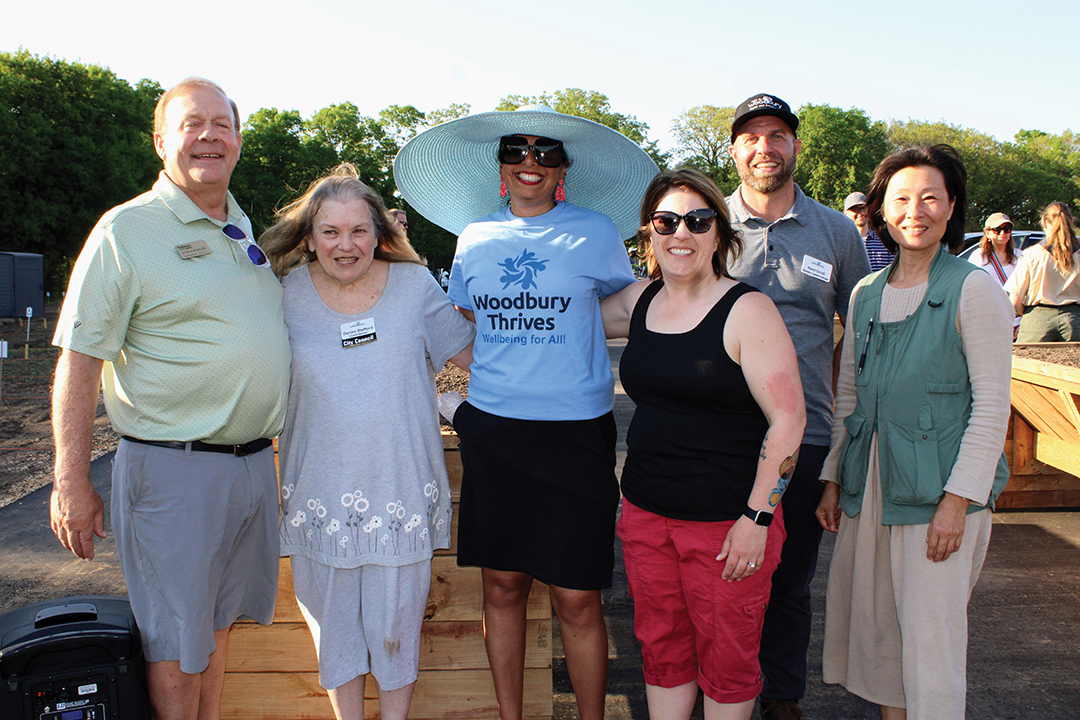
Scott Penticoff. Photos: Chris Emeott
February marks American Heart Month—the time to focus on cardiovascular health.
Scott Penticoff was an ultramarathon runner, an Ironman Triathlon athlete and an overall healthy 53-year-old who believed he was taking the best possible care of his body. So it came as a shock to Penticoff and his family, wife, Renee, and daughters Olivia and Jenna, when, on June 9, 2023, he suddenly suffered an episode of cardiac arrest during one of his typical runs.
“I’ve competed in a Hawaiian Ironman championship; three Ironman distance triathlons; two ultra distance runs, which is 100 miles, one in the Black Hills of South Dakota, and I did the Himalayan 100 Mile Stage Race in the Himalayan Mountains … I’ve done multiple marathons, hundreds of triathlons,” Penticoff says. Last summer, the Woodbury resident had been training for Hood to Coast, a team run in Portland, Oregon, and had been on mile seven-and-a-half of a 10-mile run when he started feeling uneasy. Ultimately, on mile nine, he decided to walk the rest of the way home. “The last thing I remember is that I collapsed,” he says.
Although Penticoff can’t remember what happened after that point, Michael Martin, City of Woodbury Fire Department captain and paramedic, shares the story of what happened afterward. “There were a couple of bystanders that saw what happened. One of the bystanders was one of our city councilwomen, Jennifer Santini, and she happened to be right there as it happened. She and a couple of others called 911. Then another passerby was an off-duty Bayport police officer, Aaron Slinger, who lives in Woodbury. He saw the commotion, pulled over and immediately started chest compressions.
“This really all happened simultaneously. The 911 call was being made, and multiple units were being dispatched … I’m two miles away, and I heard the call coming over police channels, so I lit up the sirens … I arrived and shocked him 2 minutes and 37 seconds after [the call was made].”
Additional chest compressions and shocks followed, and Penticoff was moved to an ambulance and brought to the emergency room. “[In the ambulance], everything kept improving. His heart rate [and oxygen levels] got stronger, and he started groaning,” Martin says. “It was very unusual … A student [paramedic who was with us] leaned over his face and asked his name. We all thought, ‘That’s cute he thinks he’ll answer,’ and he did. We were all looking at each other like, ‘This is incredible.’”
Across town, at the Penticoffs’ home, Penticoff relays what was happening: “As I’m being rushed to [the hospital], two officers knock on the door and my wife, Renee, and daughter Olivia are getting ready for the day, and they thought it was a salesperson,” he says. “They knocked louder, and my daughter said, ‘Mom, two police officers are at the door.’ … The officers asked, ‘Are you the wife of Scott Penticoff?’ and [Renee] collapsed … They offered to drive them to the hospital, and my brave daughter said she could drive them, and she did.”
Penticoff’s story is one of millions—though it is unusual from most due to “everything work[ing] perfectly,” according to Martin, who says the three most important steps were followed: 1. Immediately calling 911; 2. Immediately beginning chest compressions; and 3. Being shocked within 5 minutes.
Since the cardiac episode, the Penticoffs hope to create a nonprofit organization, Live Heart Strong, to teach proper CPR training, prevention awareness and the importance of learning about your family genetics and medical history.

The Penticoff family, from left to right: Jenna, Renee, Scott and Olivia.
“When I would walk in to [the doctor], I was dismissed because I’m an athlete and in good shape,” Penticoff says, noting that he has a family history of high cholesterol that he and medical staff had disregarded. “But it’s important not to ignore your genetics, get regular checkups and maintain a baseline,” he says.
Looking back on the cardiac episode, Penticoff says, “My left anterior descending artery—the main one—was 99 percent blocked … I’m very lucky to be alive, and I’m grateful.”
Michael Martin and the City of Woodbury Public Safety Department received permission from Scott Penticoff to share otherwise protected information regarding this medical incident.
Taking Charge
The most common CPR course is courtesy of the American Heart Association, which Martin describes as a “skill-based course” where students learn to save a life and restart the heart. While the course is well-done, Martin says it doesn’t quite prepare bystanders for what might happen, so he developed his own scenario-based course, where students are walked through common incidents, like Penticoff’s.
“[You learn] how to establish a team and execute a task,” Martin says. “It’s a heavily scenario-based course, and it helps people work through multiple [real-life] scenarios that might happen.”
Because not every person is trained in CPR—and panic can often set in during a medical incident—Martin says most bystanders often wait for someone to take charge. When in doubt, he says, “Just take action. That delay of starting a chest compression or the delay of finding an [automated external defibrillator or AED] is the difference between life and death. “To summarize: Do something. Don’t stand and wait for someone to tell you what to do—even if it’s taking charge and directing other people.”
Heart Healthy Tips
According to the Centers for Disease Control and Prevention, more than 356,000 people have an out-of-hospital cardiac arrest in the United States each year, with 60–80 percent of patients dying before reaching the hospital. Many survivors have brain or internal organ injuries.
The American Heart Association recommends you to “reclaim your rhythm” through the following tips:
- Doing at least 150 minutes of moderate physical activity per week
- Following a healthy diet and maintaining a healthy weight
- Controlling your blood sugar, cholesterol and blood pressure
- Getting regular checkups
- Not smoking or vaping
Following his cardiac episode, Penticoff says the most important thing you can do is to know your family history and make sure you’re doing annual checkups. He also stresses the importance of being your own advocate. “Doctors are busy, so I would recommend getting your labs done before seeing the doctor, not after,” he says. “… Know your family history and genetics. Don’t ignore it like I did.”
Certificates of Recognition
On September 13, 2023, the City of Woodbury and the Public Safety Department commended the bystanders with Certificates of Recognition for their life-saving efforts. Penticoff and his wife, Renee, along with their daughter Olivia were in attendance, handing out the certificates. Those recognized include, from left to right: Dave Holm, Public Works employee, who provided scene traffic control; Jennifer Santini, Woodbury City Council member, who provided scene support; Shawna Malveaux, who dialed 911; and Aaron Slinger, off-duty Bayport police officer, who provided the initial CPR.

Photos: City of Woodbury
American Heart Association
Facebook: American Heart Association
Instagram: @american_heart






















